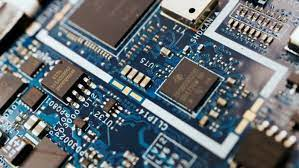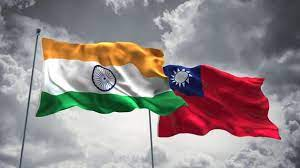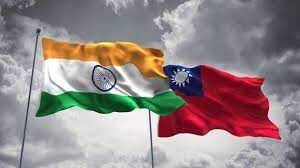Table of Contents
In response to growing tensions with China and seeking to diversify their supply chains, prominent Taiwanese technology companies are eyeing India as a potential relocation destination for their manufacturing operations. India’s vast potential in critical technologies such as semiconductor manufacturing and electronics equipment has piqued the interest of the country’s major players, according to the country’s Deputy Minister for National Development, Kao Shien-Quey.
Kao Shien-Quey emphasized that there is significant scope for collaboration between Taipei and New Delhi, particularly in emerging and critical technologies. This partnership would not only strengthen the global supply chains of the country’s firms but also serve as a strategic move to “decouple” from China while maintaining a link for domestic consumers.
Given the trade dispute between Washington and Beijing, coupled with China’s aggressive military actions around the country, Taiwanese companies are considering relocating their production bases from China to other regions such as Europe, North America, the US, and India.
India’s significance as a potential production hub for Taiwanese chip manufacturers, including the world’s largest chipmaker, Taiwan Semiconductor Manufacturing Corporation (TSMC), has drawn considerable attention. India’s ambition to host production facilities for these leading companies, which supply chips to global giants like Apple, aligns with its own strategic goals.

Development Policy
As part of the country’s “China-Plus-one” strategy, which encourages businesses to expand operations beyond China, numerous Taiwanese companies plan to establish production bases in India. Talks are currently underway with a Taiwanese semiconductor firm to set up a manufacturing facility in India, with details expected to be finalized soon.
With the country producing nearly 70% of the world’s semiconductors and more than 90% of advanced chips, the island nation’s technological prowess plays a crucial role in various electronic equipment, including smartphones, car components, data centers, fighter jets, and AI technologies.
Kristy Tsun-tzu Hsu, the director at the country’s ASEAN Studies Center, noted that the Indian economy’s significant size offers an opportunity for it to alter its trade dynamics with China and reduce its dependence on the mainland. The expansion of Taiwanese technology companies in India, like Foxconn, Apple’s major supplier, sets a positive precedent for further investment.
India-Taiwan Relations

While the two countries lack formal diplomatic ties, the bilateral trade between the two has been steadily increasing, reaching USD 8.9 billion in 2021, up from USD 2 billion in 2006. Despite the lack of official diplomatic relations, both sides maintain robust trade and people-to-people connections.
However, experts in India have been advocating for an upgrade in ties with Taiwan, particularly in trade and investment, following the eastern Ladakh border dispute with China. This move could further strengthen India’s economic position and provide Taiwanese companies with a reliable and strategic partner in the region.
In conclusion, the escalating tensions with China have prompted leading Taiwanese technology firms to seek alternative manufacturing bases to reduce exposure to the Chinese market. India, with its robust manufacturing capabilities and potential for strategic collaboration, has emerged as a prime destination for Taiwanese companies aiming to fortify their global supply chains. This move is expected to facilitate economic growth for both nations and contribute to regional stability in the Indo-Pacific.
Taiwan has established itself as a global leader in industrial development, particularly in areas such as semiconductor manufacturing and advanced chip production. It accounts for a significant portion of the world’s semiconductors. In comparison, India has been making strides in industrial growth but still has room for further development and specialization.













